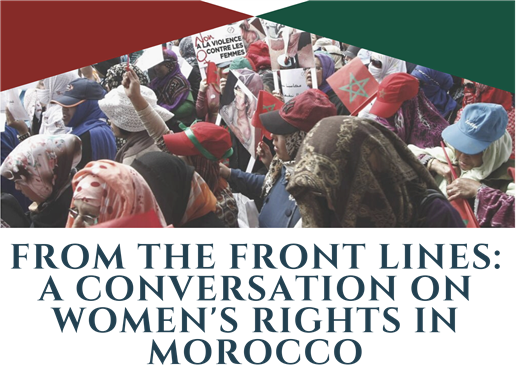 Jadaliyya are hosting a special event on contemporary women’s rights, human rights, and press freedom in Morocco on 12 March at 4pm BST. The event, moderated by Jadaliyya co-editor Samia Errazzouki in both Arabic and English, features a panel of experts who approach the topic from a variety angles. It is designed to give an overall survey on the contemporary situation of the aforementioned topics as they relate to Morocco, providing insights into the country from the perspective of journalists, writers, lawyers, and activists who have challenged patriarchal state dynamics firsthand. Also among the speakers will be experts who work on a policy-level and have proposed recommendations which address the struggles featured in this event.
Jadaliyya are hosting a special event on contemporary women’s rights, human rights, and press freedom in Morocco on 12 March at 4pm BST. The event, moderated by Jadaliyya co-editor Samia Errazzouki in both Arabic and English, features a panel of experts who approach the topic from a variety angles. It is designed to give an overall survey on the contemporary situation of the aforementioned topics as they relate to Morocco, providing insights into the country from the perspective of journalists, writers, lawyers, and activists who have challenged patriarchal state dynamics firsthand. Also among the speakers will be experts who work on a policy-level and have proposed recommendations which address the struggles featured in this event.
More information here
